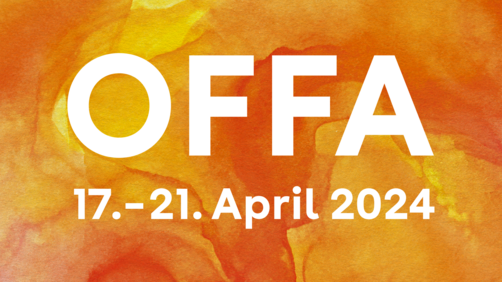Events - 29.03.2012 - 00:00
Challenging the Best at the HSG
After a day of workshops, participants of HSG’s annual Challenge the Best conference concluded by living up to its name with students interrogating a panel of invited experts on issues of water security.
28 March 2012. In several parts of the world, water is currently a scarce resource due to population growth and climate change which is why the theme of this year’s Challenge the Best was water scarcity. Throughout the day, over 40 students from 14 different countries looked into questions related to water scarcity such as “Which measures promise improvements to the situation” and “What can be done to help the affected people efficiently?”
Close collaboration
The invited experts worked closely with the students to examine and debate these questions in a series of workshops throughout the morning. Then in the afternoon, all the invited experts were brought together for a Public Panel Discussion. While this panel is often the highlight of challenge the best, never more so than this year. Whereas in some past Challenge the Best panel events, the invited experts address the selected issues with a journalist moderator, this year the students took the lead in questioning the guests.
The panel discussion was split into three topics focused on water security, and for each topic two students were chosen to ask questions and engage the experts over their answers.
Facing Global Water Scarcity – Why have we failed?
The first subject the panel examined was entitled “Facing Global Water Scarcity – Why have we failed?” Three of the experts (Dr. Amer Mokbel Director Sales Area Gulf of Wilo SE, Dieter Rothenberger the head of the German government’s development agency “Gesellschaft für internationale Zusammenarbeit” and Dr. François Muenger Head of Global Water Initiatives Division Swiss Agency for Development and Cooperation) examined the methodology and process of deciding what water related projects various water projects are perused and why. Mr. Dieter Rothenberger explained that in setting up hydro plants or other projects, a consistent problem is that local authorities in affected areas simply don’t collect data that allows for project design.
“The key problem in our project; the basic data in order to establish the right contract, in terms of what is the base line we are talking about - how much energy is being used, how much water is being pumped - this kind of base line data,” Mr. Rothenberger said, “you would think it’s easy to come by, but it just isn’t available because the local authorities just don’t see a reason to keep it.” It is typically only after infrastructure is in place that he said local authorities begin keeping more accurate data, and then forward progression is easier.
Water – A Source of Conflict or Peace?
The second subject entitled “Water – A Source of Conflict or Peace” saw Deputy Director-General of the International Committee of the Red Cross (ICRC) Robert Mardini and Minister of Water and Environment of the Republic of Uganda Hon. Maria Mutagamba discussing the need for consistent access to water in conflict areas. Interestingly it was observed that – when it comes to water at least – states tend to be more cooperative, finding better results through negotiation.
For example, speaking about Israel and the occupied territories Robert Mardini said, “this example pushes me to see the glass as half full. I can give many examples – at the peak of the crisis between the Israelis and the Palestinian authorities - where both the Palestinian water facilities and Israeli Water commission came to very pragmatic solutions in order to not disrupt the water supply to the populations and to take the water supply out of the cycle of violence.”
A Fair Price for water?
The third subject discussed focused on “Reasonable Price for Water – Is there a Fair Price?” where Strategic and Technical Advisor for Water Resources, Nestlé Mr. Carlo Galli and Globethics.net and Transparency founder Prof. Dr. Christoph Stückelberger discussed the ethical and business sides of pricing access to water.
The panel debate, was moderated by BBC World News anchor Lucy Hockings. Before Monday’s event, the 40 Student Participants, from March 23rd to 25th, took part in an intense three-day Preparation Seminar for the conference, led by experts in their fields.
More articles from the same category
Discover our special topics











